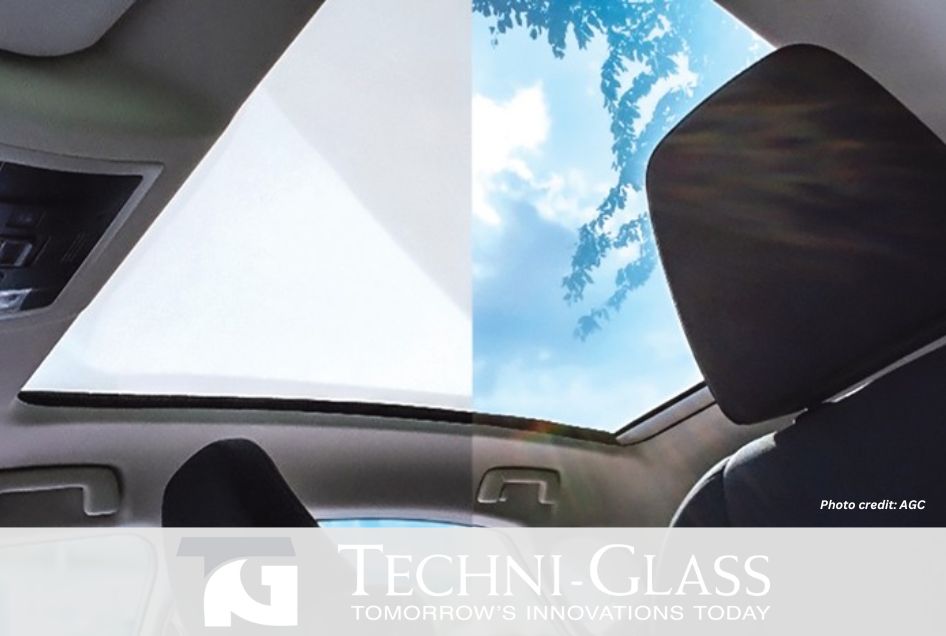With advancements in technology and a growing demand for smarter, more connected vehicles, the automotive intelligent glass market is projected to witness substantial growth in the coming years. According to market research, the global automotive intelligent glass market is expected to grow at a compound annual growth rate (CAGR) of around 10-15% over the next decade. By 2030, the market size is projected to reach several billion dollars, with significant contributions from North America, Europe, and Asia-Pacific regions.
What is Automotive Intelligent Glass?
Automotive intelligent glass refers to advanced glass technologies integrated into vehicles to provide a range of functionalities beyond the traditional role of offering visibility and protection. These functionalities include:
- Dynamic Tinting: The ability to change the transparency or tint of the glass in response to environmental conditions such as sunlight, temperature, or user preferences.
- Heads-Up Displays (HUD): Transparent displays projected onto the windshield, providing drivers with critical information such as speed, navigation, and alerts without diverting their gaze from the road.
- Augmented Reality (AR): AR technologies can overlay digital information onto the real-world view through the windshield, enhancing navigation and situational awareness.
- Heating Elements: Intelligent glass can incorporate heating elements to defrost or defog the windshield, improving visibility in adverse weather conditions.
- Solar Energy Harvesting: Some intelligent glass technologies are designed to harness solar energy, contributing to the vehicle’s power system and improving overall efficiency.
Read more:
Applications and Benefits
The applications of intelligent glass in the automotive industry are vast and varied, offering numerous benefits to both drivers and manufacturers:
- Enhanced Safety: With the integration of HUDs and AR, drivers can access critical information without taking their eyes off the road, reducing the likelihood of accidents caused by distraction.
- Energy Efficiency: Dynamic tinting and solar energy harvesting contribute to better climate control within the vehicle, reducing the load on air conditioning systems and improving fuel efficiency or battery life in electric vehicles (EVs).
- Comfort and Convenience: Intelligent glass can automatically adjust to changing light conditions, reducing glare and enhancing passenger comfort. This is particularly beneficial for long drives and in regions with intense sunlight.
- Aesthetic Appeal: The sleek, futuristic design of vehicles equipped with intelligent glass can enhance the aesthetic appeal, making them more attractive to consumers seeking modern, high-tech solutions.
Read more:
Market Growth and Projections
The automotive intelligent glass market is poised for significant growth, driven by several key factors:
- Increasing Demand for Electric Vehicles (EVs): As the adoption of EVs continues to rise, manufacturers are looking for ways to improve energy efficiency and extend battery life. Intelligent glass, with its energy-saving capabilities, is becoming an essential component in EV design.
- Advancements in Autonomous Driving: The development of autonomous vehicles is accelerating the demand for intelligent glass. AR and HUD technologies are critical for providing real-time information and enhancing the safety of self-driving cars.
- Consumer Preferences for Advanced Features: Modern consumers are increasingly prioritizing vehicles with advanced technological features. Intelligent glass offers a range of benefits that align with these preferences, making it a key selling point for manufacturers.
- Stringent Safety Regulations: Governments and regulatory bodies worldwide are imposing stricter safety standards on vehicles. Intelligent glass technologies, particularly those that enhance driver visibility and reduce distractions, are becoming increasingly important in meeting these standards.
Challenges and Considerations
While the prospects for automotive intelligent glass are promising, the industry faces several challenges:
- High Costs: The development and integration of intelligent glass technologies can be expensive, leading to higher production costs for manufacturers. However, as the technology matures and economies of scale are achieved, costs are expected to decrease.
- Technical Limitations: Ensuring the durability, reliability, and effectiveness of intelligent glass under various environmental conditions remains a technical challenge. Ongoing research and development are crucial to overcoming these limitations.
- Consumer Awareness: Many consumers are still unfamiliar with the benefits of intelligent glass. Education and marketing efforts are needed to raise awareness and drive adoption.
Learn More
With substantial growth projected in the coming years, manufacturers and consumers alike are poised to benefit from the enhanced safety, efficiency, and comfort that intelligent glass brings to the driving experience. Let us know if you have any questions or if you’d like to start any projects with us!
Get the conversation started. Contact Techni-Glass to discuss your project today!

